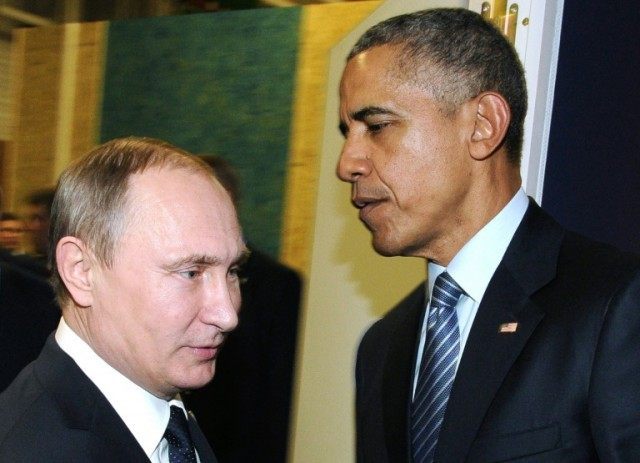TEL AVIV – The official Saudi daily ran an article attacking the Obama administration for its “soft power” policy in the Middle East, saying the U.S. “surrendered Syria” and turned its back on Arab nations in the region, leaving Russia to pick up the pieces.
Following statements by senior Saudi officials in favor of putting boots on the ground in Syria, Saudi newspaper Al-Riyadh published an editorial that lambasted the U.S. for refusing to deploy the military force needed to “to put things back on track.”
Editorialist Ayman Al-Hammad scorned the U.S.’s policy of “soft power,” saying America was only using this strategy “to improve its image in the world,” despite the fact that America had always been associated with military force and “cowboy and Star Wars films.”
The author said that America’s tough military campaigns in the aftermath of the attacks on the World Trade Center on September 11 affected its image as “a pluralist and free country.”
This led to President Barack Obama feeling that he was left with no choice but to swing to the other extreme and abstain from military intervention in an attempt to restore the U.S.’s “exemplary legacy.”
“During the previous decade, Barack Obama’s presidency was characterized by an abstention from adopting military solutions and from dispatching American soldiers to combat zones, and [a preference for] political initiatives instead,” Al-Hammad wrote, adding that the Obama administration is characterized as being the “pinnacle of America’s soft power policy.”
“The Syrian crisis is a conspicuous example of this. America’s military absence from the region, be it in Iraq or in Afghanistan, and its surrender of Syria, helped tarnish its image in the eyes of the countries in the region. From these countries’ perspective, the U.S. has turned its back on them, while Russia and its allies have assumed this role,” Al-Hammad contended.
According to Al-Hammad, the Arab states have been repeatedly disappointed by Obama, “which expected him to take a more sympathetic approach to their problems than his predecessor George Bush Jr.”
He argued that Obama’s neglect of the Palestinian question and his rapprochement with Iran have damaged the president’s popularity, even at home. According to Al-Hammad, America’s status as a superpower and its global hegemony are a result of the military might that Obama is now scorning in favor of political alternatives.
“[U.S.] hegemony is derived solely from its military force and from its cowboy and Star Wars films. [Only] after dropping the two atomic bombs on Hiroshima and Nagasaki did the U.S. become the number one world power,” he wrote, but added that his words should not be misconstrued as support for America’s numerous military campaigns.
“War actually is the worst [possible] tool, but occasionally its use is inescapable. Sometimes, a little firmness is needed to put things back on track,” Al-Hammad concludes.

COMMENTS
Please let us know if you're having issues with commenting.